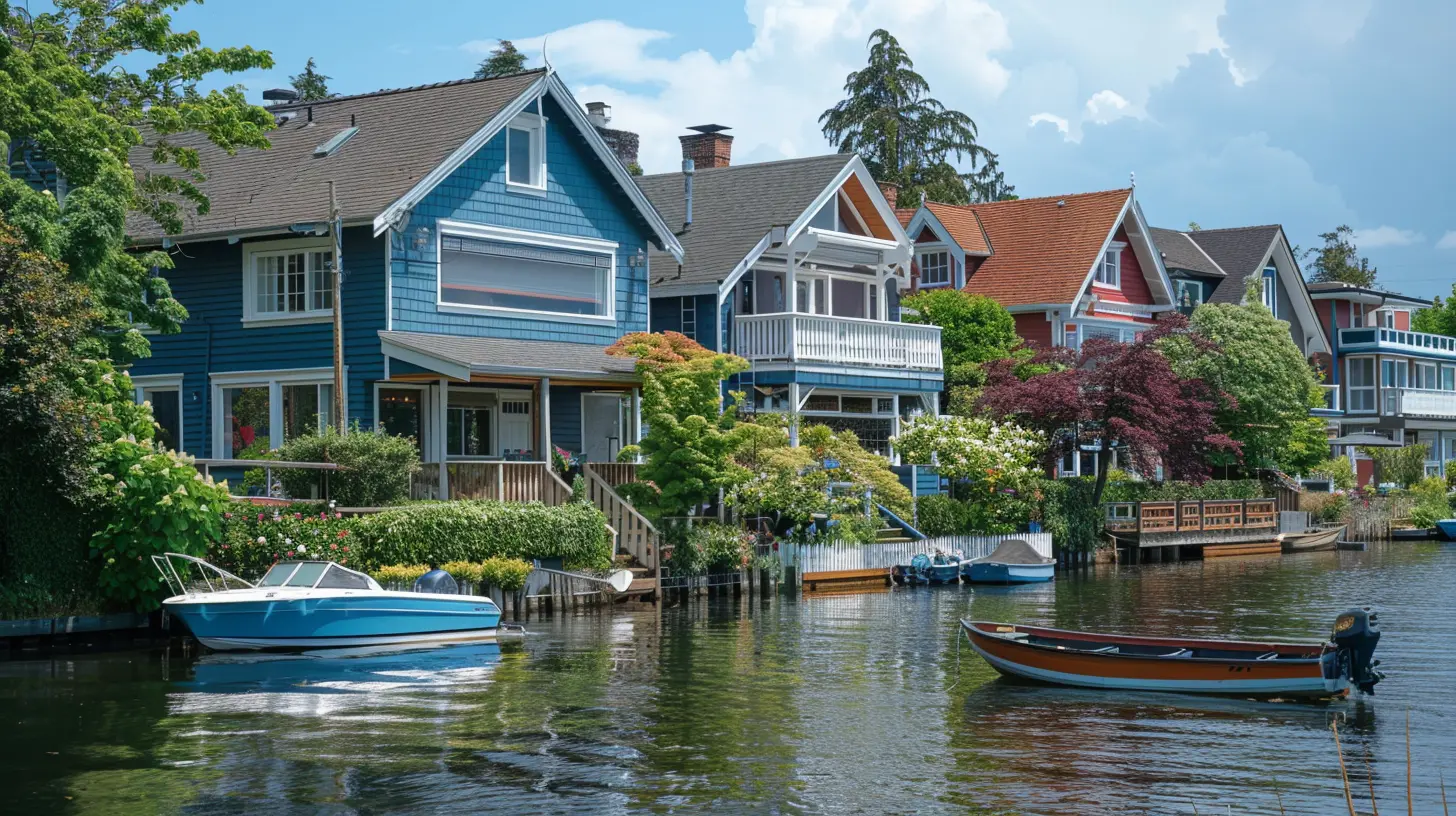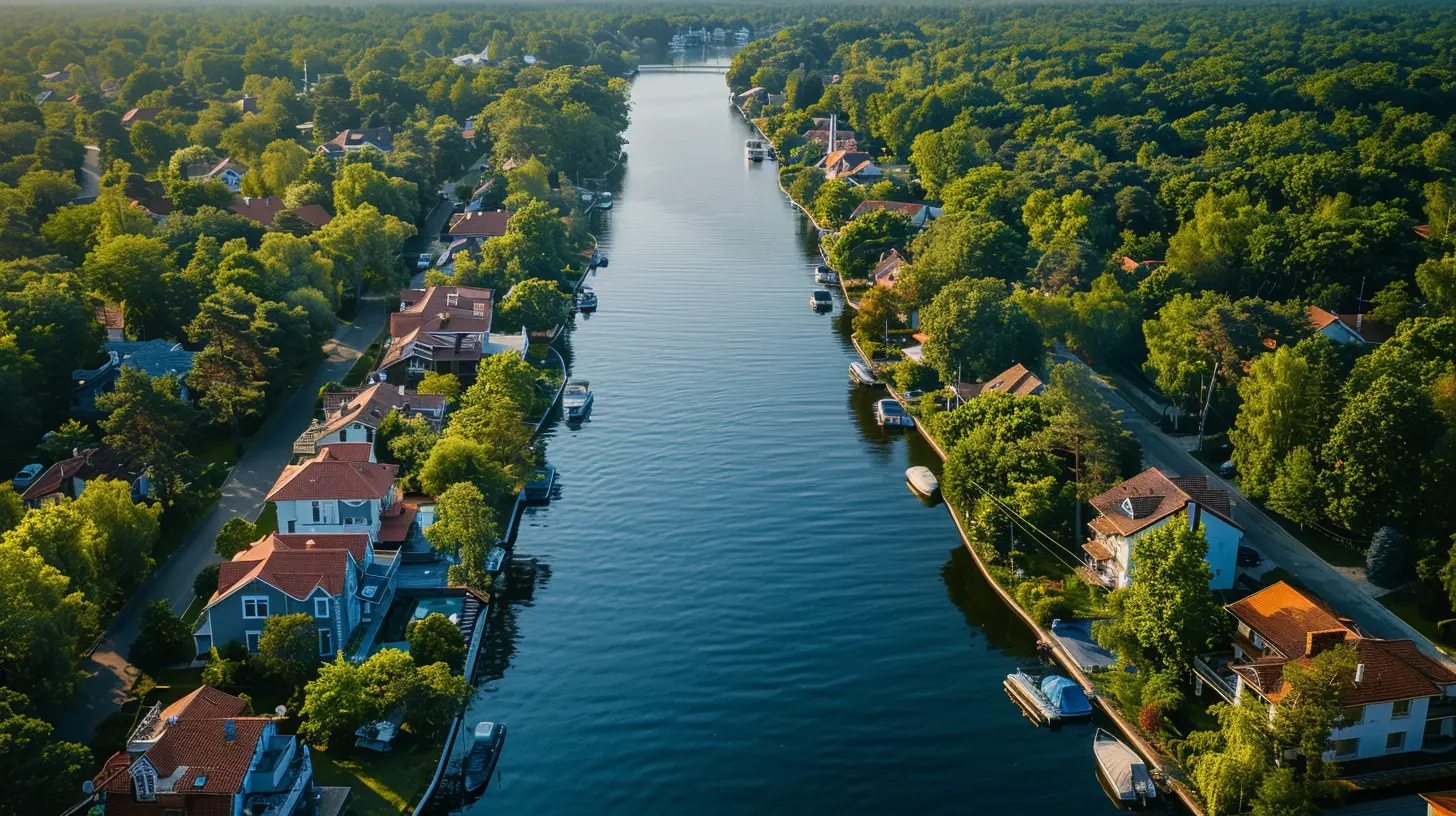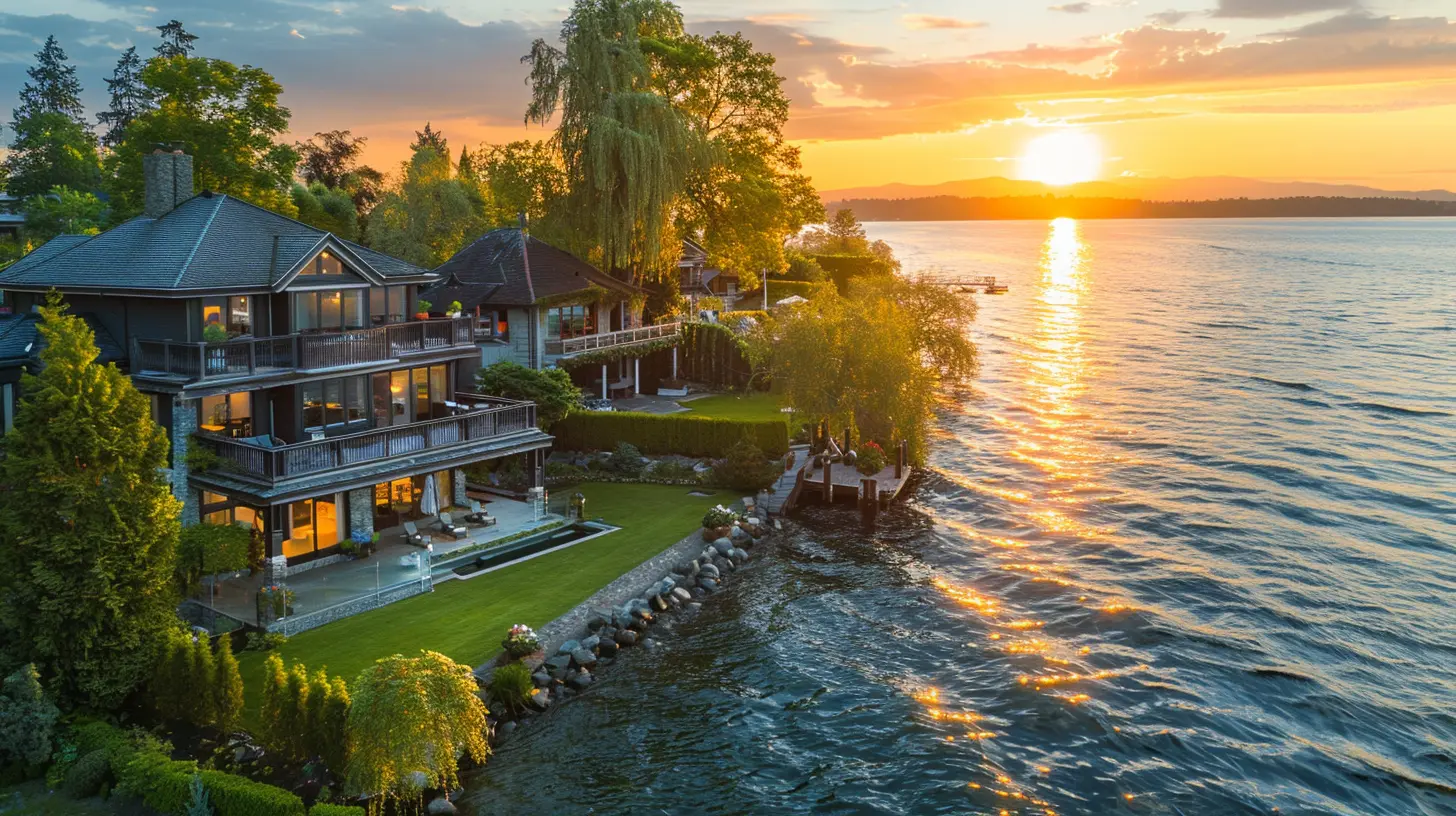Zoning Laws for Waterfront Properties: What to Know
17 November 2025
Owning a waterfront property sounds like a dream, doesn’t it? Waking up to the sound of waves, stepping out onto your private dock, and enjoying breathtaking views every day—pure bliss. But before you start picking out your beach chairs and planning boat rides, there’s one big thing you need to understand: zoning laws.
Waterfront properties come with a unique set of rules, and ignoring these can turn your dream home into a legal nightmare. So, let’s break down what you should know about zoning laws for waterfront properties in a way that’s easy to digest. 
What Are Zoning Laws?
Zoning laws are basically the rulebook that dictates how land can be used. Cities and towns use these laws to organize land use, control development, and keep everything in order. They determine:- What can be built where
- What activities are allowed on certain properties
- How properties can be modified or expanded
When it comes to waterfront properties, zoning laws get even more specific, thanks to factors like environmental concerns, public access rights, and coastal preservation. 
Why Waterfront Properties Have Special Zoning Rules
Unlike a regular home in the suburbs, a waterfront property affects more than just the homeowner. These properties are part of sensitive ecosystems, and improper development could harm marine life, cause erosion, or disrupt water flow.Authorities create strict zoning laws for waterfront areas to:
- Protect natural ecosystems – Limiting construction prevents damage to wetlands, beaches, and aquatic environments.
- Control flooding and erosion risks – Regulations keep properties safe from high tides, hurricanes, and rising water levels.
- Ensure fair public access – Some zoning laws prevent private owners from restricting access to beaches, lakes, or riverbanks.
Ignoring these rules can lead to hefty fines, lawsuits, or even forced removal of structures. So, yeah, it’s serious business. 
Key Zoning Regulations for Waterfront Properties
Now, let’s get into the details. Here are the most critical zoning laws you need to be aware of when buying or developing a waterfront property.1. Setback Requirements
Setbacks dictate how close a building can be to the water. Most areas require homes, decks, and other structures to be a specific distance away to prevent environmental damage and erosion.For example, in coastal regions, setbacks might require buildings to be at least 50 to 100 feet from the high-water mark. The exact distance varies depending on local and state laws.
If you're thinking about adding a dock or boathouse, those might have separate setback rules as well.
2. Building Height and Size Restrictions
Want to build a multi-story home overlooking the water? Check the local height restrictions first. Some zoning codes limit how tall a structure can be, especially in areas that prioritize scenic views.There may also be regulations on the total square footage of your home, ensuring that large buildings don’t overwhelm the shoreline or disrupt the natural landscape.
3. Dock and Pier Regulations
Not all waterfront properties automatically allow private docks or piers. Some areas require special permits, and others outright ban personal docks to protect marine ecosystems.Key things to consider:
- Do you need a permit to build a dock?
- Are there limits on dock size and length?
- Can you install a boat lift or mooring system?
Before you invest in a waterfront home with visions of a private dock, check the zoning laws first—you might need to settle for a community pier instead.
4. Environmental Protection Regulations
Waterfront zoning laws often prioritize environmental conservation. These regulations could include:- Limited tree cutting – Some areas restrict the removal of trees or vegetation near the shoreline to prevent erosion.
- Stormwater management rules – Regulations might require homeowners to install drainage systems to prevent runoff from contaminating the water.
- Wildlife protection laws – If your property is in a protected wildlife area, you may face bans on certain activities like fishing or boating.
Ignoring these environmental protections can lead to legal troubles and hefty fines.
5. Public Access Rights
Just because you own a waterfront property doesn’t necessarily mean you own the shoreline itself. Some areas enforce public easements, meaning others have the right to walk along the water’s edge, even if the land is technically part of your property.Before assuming your beach is private, check whether local laws grant public access to it.
6. Floodplain and Storm Risk Regulations
Waterfront homes face a higher risk of flooding, hurricanes, and erosion. Because of this, zoning laws often include strict requirements for:- Elevated construction – Some homes near the water must be built on stilts or raised foundations to prevent flood damage.
- Special construction materials – Buildings might need to use flood-resistant materials.
- Mandatory flood insurance – In high-risk areas, flood insurance could be a legal requirement.
If you’re buying a home near the water, check if it's in a FEMA-designated flood zone—this can impact both insurance rates and building requirements. 
What Happens If You Violate Waterfront Zoning Laws?
Let’s say you ignore the zoning laws and build a deck too close to the water, or you construct a dock without a permit. What happens next?Here are some possible consequences:
- Hefty fines – Many areas have strict penalties for zoning violations, sometimes reaching thousands of dollars.
- Forced removal – If an illegal structure is built, authorities can demand that you remove it at your own expense.
- Denial of future permits – Breaking zoning laws can make it tough to get approvals for future renovations or expansions.
- Legal battles – In extreme cases, violating zoning laws can lead to lawsuits from local governments or environmental groups.
Bottom line? It’s not worth the risk. Always check the zoning laws before making changes to your waterfront property.
How to Navigate Waterfront Zoning Regulations
Feeling overwhelmed? Don’t worry—there are ways to navigate these zoning laws and still enjoy your dream waterfront home.1. Research Local Zoning Codes
Before buying or building, check with the local zoning department. They can provide information on setbacks, height restrictions, and environmental regulations.2. Hire a Real Estate Lawyer
A lawyer specializing in real estate can review zoning laws and help ensure you don’t run into legal issues.3. Get the Necessary Permits
If you plan on building something—whether a dock, deck, or addition—always apply for the right permits. Skipping this step can lead to major headaches down the road.4. Consult a Land Use Planner
A professional land use planner can help you understand the best way to develop your waterfront property without violating zoning laws.5. Join a Homeowners’ Association (If Applicable)
Some waterfront properties are part of a homeowners’ association (HOA) that has additional rules beyond local zoning laws. Be sure to check these as well!Final Thoughts
Owning a waterfront property is an incredible privilege, but it comes with a set of responsibilities. Zoning laws exist for a reason—to protect the environment, reduce risks, and ensure fair access for all.Before making any moves, do your homework. Research the zoning laws in your area, get the necessary permits, and consult experts if needed. That way, you can enjoy your slice of paradise without any legal complications.
After all, the last thing you want is for your waterfront dream to sink because of a zoning violation!
all images in this post were generated using AI tools
Category:
Zoning RegulationsAuthor:

Travis Lozano
Discussion
rate this article
1 comments
Kristy McFarland
Zoning laws shape our relationship with nature; understanding them is essential for sustainable development and preserving waterfront ecosystems.
November 27, 2025 at 5:38 AM

Travis Lozano
Absolutely! Zoning laws play a crucial role in balancing development with environmental protection, ensuring that waterfront ecosystems are maintained for future generations.


